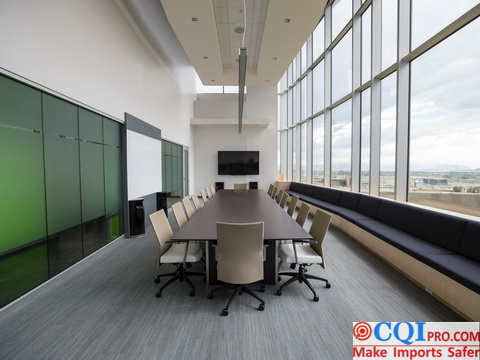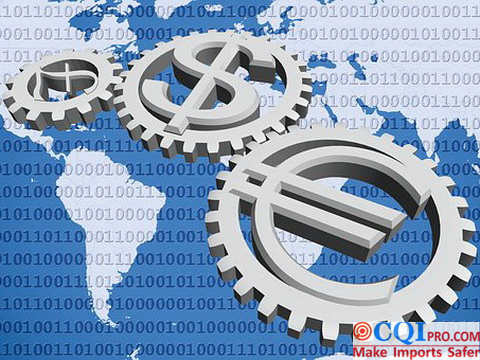Managing China Branch Offices, Follow These Principles
For large international importers, many branches or offices are usually set up in major purchasing areas in China to meet the challenges of transnational supply chain, facilitate the supply chain management of suppliers or factories in china to improve their level. However, due to various controllable and uncontrollable reasons, such as long distance, inefficient communication between the head office and local branches, huge cultural differences, and huge differences in employees’ understanding of work and transnational operations, The difficulty in managing Chinese branches or offices is underestimated. As a direct result, branches or offices cannot successfully perform supply chain management functions, which is costly but inefficient.

Why Importers Can't Manage Their China Branch Offices
Reducing procurement cost and ensuring product quality are the eternal themes of supply chain management. In the transnational import business, many failure cases reveal such a cruel fact. If the transnational procurement branch or office is poorly managed, or even ineffective, the importer’s Chinese branch or office will become a tool for making money for the person in charge. Such cases abound. For example, Wal-Mart cancels the inspection department. Outsourcing to an international veteran third-party testing company, the Chinese branch of a household goods giant in the United States was collectively dismissed, and even the collective dismiss in the purchasing department of a Chinese local handicraft export giant, all of which reflect a basic fact. In the face of huge interests, how to carry out effective transnational procurement and how to effectively carry out transnational supply chain management is a huge learning.
Some Principles Of Managing a China Branch Office

CQI Inspection Company has been in the supply chain management industry for 20 years, and clearly knows that there are very few importers who can successfully operate transnational supply chains after all, and most importers do not have enough experiences and wisdom to manage procurement branches or offices in china. This article puts forward the following management principles for large multinational importers to manage China’s procurement branches or offices, so as to benefits readers. For small importers to manage China’s supply chain, please take another step.
Rotation principle
- Arrange different inspectors to make inspection for the early, middle and late stages of product quality control.
- Try to arrange different inspectors to make inspection in the same factory.
- Need to regularly rotate the supervisors of Inspectors in different regions.
- Heads of branches or offices in different regions shall be rotating regularly.
Moderate outsourcing principle
- Try best to outsource the picking of testing samples from the production site, and send to specified laboratory to a cost-effective third party inspection company.
- 10% of inspection orders are outsourced to highly cost effective third-party inspection companies, so as to reduce inspection risks and promote the work attitude of inspectors in our company.
- Inspection orders in remote areas should be outsourced to third-party inspection companies to reduce travel expenses.
- In the peak season, make fully use of third-party inspection companies to reduce the work pressure of inspectors in order to avoid making mistakes in busy work.

Scoring and evaluation principles
In the field of supply chain management, the common functions and their descriptions have the following parts:
Responsible for quality inspection of bulk goods, finding problems and reporting to the company, but not having the right to decide whether the inspected goods can be shipped. The inspector’s performance evaluation is graded from the perspective of the breadth and depth of quality problems found by the inspector, and it is not simply and rudely counting the number of customer complaints. For example, some companies stipulate that the inspector will be dismissed if he is complained by customers once a year, which will make the inspector feel insecure and have no belonging, resulting in short-term behavior of the inspector during inspection in daily work.
Responsible for purchasing goods, reviewing the inspector’s inspection report, and putting forward suggestions on whether to ship or not. However, if the inspection department disagrees with the purchasing staff’s decision of shipment, it can propose multi-departments to discuss together, so that the purchasing department can evaluate the risks from the perspective of timely delivery and the inspection department can evaluate the risks from the perspective of quality risk.
Principle of balance of power
On the premise of refined functional departments, the powers of various departments should be checked and balanced. For example, it is stipulated that purchasing staffs should not concurrently serve as Sourcing business. It is stipulated that the inspection team is responsible for the pre-shipment inspection of products, but the inspector has no authority to decide whether goods can be shipped. The QA department is responsible for the pre-development and develop samples, and the inspection department has the right to question the release decision of purchasing personnel. In case of disputes, the supervisors or department managers of multiple departments (purchasing department, quality inspection department and QA department) should coordinate and solve them.
CQI Inspection summary
Establishing and purchasing branches or offices in purchasing regions and countries is an important solution for transnational supply chain management. However, good management and operation are even more critical. Otherwise, the losses may be outweighed by the gains, resulting in serious consequences. For example, Wal-Mart headquarters in the United States finally banned the Asia-Pacific purchasing branch, which has been in operation for more than ten years, and outsourced the purchasing power in the Asia-Pacific region to a large trading company in Hong Kong. In the face of huge economic interests, all management is nothing. But if there is no proper management, it will be a disaster for importers. Being good at borrowing external forces and putting pressure on internal management is a short and quick solution.
CQI5 is committed to providing importers worldwide with product quality inspection services that far exceed those of our peers. If you are planning to import or have imported from China or Southeast Asian countries, please contact us cs’@’cqipro.com to learn more about how we can make your imports safer.
This article is an original article for CQI Inspection, who is committed to providing high-quality product inspection technology and know-how sharing for global importers and retailers to make imports safer.
All rights reserved. The contents of this website provided by CQI Inspection may not be reproduced or used without express permission.
For reprint, please contact with CQI Inspection, thank you.





